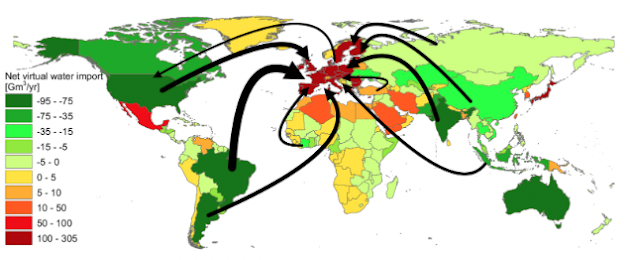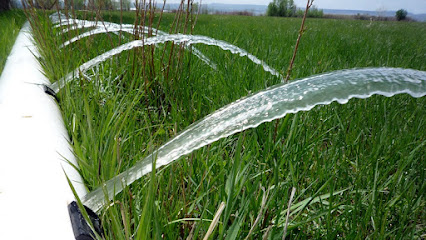Virtual water: a useful policy tool?

So far, this blog has focused on traditional methods of ensuring water and food security like irrigation schemes and groundwater extraction. However, there exist more abstract solutions, including virtual water, that may offer equally promising avenues. Put simply, virtual water measures the water that is 'lost' in the production of any commodity ( Allan, 1997 ). I isolate agricultural commodities due to their water-intensive nature - it requires 1000 cubic metres of water to produce a ton of grain ( Allan, 2003 ). Therefore, virtual water can be harnessed as another method of achieving water and food security. This view argues that the bluewater used in irrigation is an inefficient use of resources when these crops, at least highly water-intensive ones, can be imported from elsewhere ( Zeitoun et al., 2010 ). Whilst we've analysed issues of water and food scarcity on a strictly continental scale, this is a gross simplification of reality. Virtual water allows us to globali...
